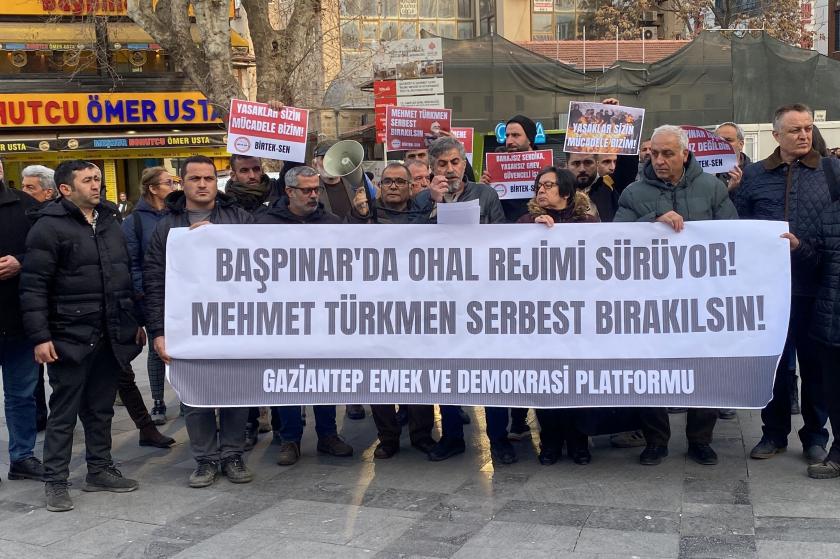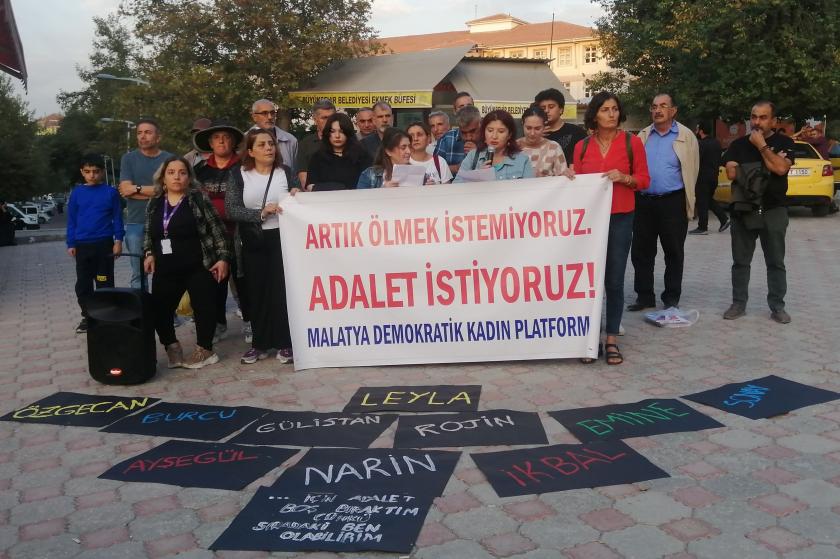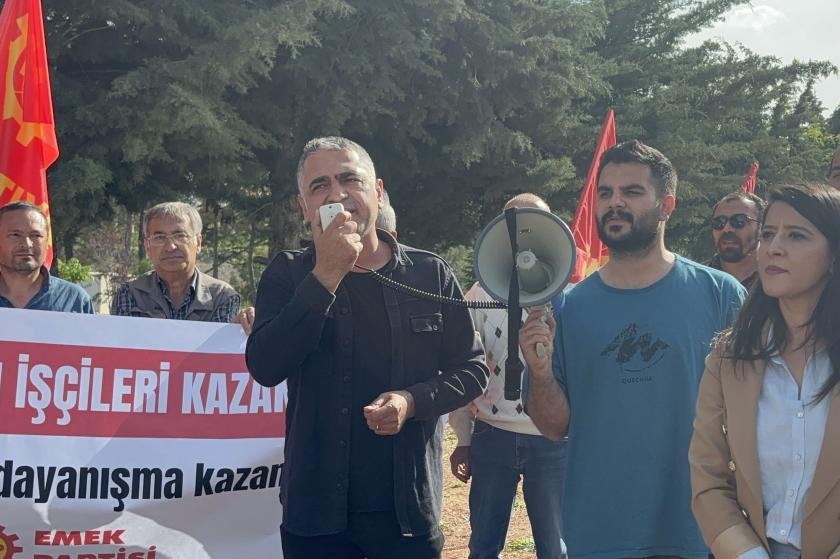Slavoj Zizek’s historical moment and his strange communism
To be a pop-star philosopher and to remain so, making radical and sometimes interesting claims may be the necessary condition of this market. Arif Koşar wrote about the coronavirus statements of Slavoj Zizek.

Slavoj Zizek | Fotoğraf: Andy Miah/Flickr
Arif KOŞAR1
Zizek's assertion about the coronavirus epidemic in February was so ambitious that he needed to express himself more accurately, perhaps with corrections, with new interview and statements. But he did not give up what he said first. Being a pop-star philosopher required saying remarkable things:
“The coronavirus will also compel us to re-invent communism based on trust in the people and in science.”2
Why?
Because “The coronavirus is increasingly disturbing the smooth running of the world market and, as we hear, growth may fall by two or three percent. Does all this not clearly signal the urgent need for a reorganization of the global economy which will no longer be at the mercy of market mechanisms?”
What Zizek heard about the world economy is true. The "global economy" as human health, life and their compulsory basis should not be left to the mercy of the market and it is true that we need it. However, it was not because of the "smooth functioning" of the world markets until now, and the disruption right now. Zizek continues:
“We are not talking here about old-style communism, of course, just about some kind of global organization that can control and regulate the economy, as well as limit the sovereignty of nation-states when needed.”
Maybe a United Nations (UN) government. The kind that will interfere with the markets. How to choose this organization, which states or classes will have an impact, they are not so obvious. To be honest, “I don't know how this can be done. I'm not even sure if it can be done, but there must be a way for civilization to survive.” Because;
"The impossible is already happening, for example Boris Johnson declared that railways were temporarily nationalized on March 24th, with a measure that even Corbyn did not consider to that extent."
Zizek's statements, which imply that Johnson had to actually implement communism, became a subject to debate naturally. This time, Zizek expressed more clearly what he understood from communism:
“If thousands will be hospitalized for respiratory problems, a vastly increased number of respiratory machines will be needed, and to get them, the state should directly intervene in the same way as it intervenes in conditions of war when thousands of guns are needed, and it should rely on the cooperation of other states. As in a military campaign, information should be shared and plans fully coordinated – This is all I mean by ‘communism’ needed today.”
'COMMUNIST MEASURES'
In his writings and interviews, Zizek emphasizes correctly that free market capitalism is insufficient in the face of the coronavirus outbreak and that state intervention has become imperative. According to Zizek, this was a preliminary step in communism that needed to be “reinvented”.
Thus, his "proposal for communism" came into play "as the name of something already underway, previously thought or even partially implemented.” Implemented 'communist' measures are that state is much more active “at least by arranging the production of urgently necessary things like masks, test kits and respirators, by guaranteeing the minimum conditions for survival of all those who are not working, and by ignoring market mechanisms in all of these.”
As can be seen, what Zizek means with “communist measures” is some measures taken by the states against the epidemic.
To be a pop-star philosopher and to remain so, making radical and sometimes interesting claims may be the necessary condition of this market. However, it is possible to say that these explanations are strange, more appropriate, quite erroneous. At least in three ways:
CAPITALISM IN DREAMS
First of all, such an interpretation is based on an idealized understanding of capitalism, at least it assumes this: There is no "perfect competition capitalism" without state intervention. In the real world, the state intervenes in accordance with the interests of capital or the stability of the social order, as it “regulates” the market. This is not only in the period of the "welfare state" that continued after the Second World War until the mid-1970s, but throughout the history of capitalism, with fewer doses and different conditions. Even the genetic existence of human entails some exceptions in the market, for example, some of the health is under state support in almost all countries. In some, public enterprises and more. It varies from country to country, but there is no capitalism where the state is not an economic actor. Transferring billions of dollars to capital in the 2008 crisis and the current coronavirus pandemic are also the closest and well-known examples.
In summary, state intervention is an inevitable element of capitalist relations, even those that arise not only in the form of support for capital, but with the enforcement of the class struggle. As Zizek knows, as the general structure of the economy is based on the production of surplus value and the seizure of it through the market, the division of society into two basic classes is constantly reproduced. As long as this mechanism of exploitation continues to strongly influence all social relations, and if there is no social / class movement that forces this foundation and attempts to change it, producing “masks and test kits” by states, temporarily expropriating private hospitals, and allocating a minimum income to people for certain periods of time, the “taking a much more active role” of the state are not “communist measures” but capitalist measures that predict the stability of capitalist social reproduction. Much more was done in the wake of the 1929 crisis, no one thought of it as communism.
GLOBAL HOPES, AGAIN
Secondly, Zizek justified the need for communism with a need for transnational coordination: “Of course, states need to support global solidarity, but what we need is more than cooperation, these actions need to be coordinated directly.” Communism as a “type of global organization that can control and regulate the economy” but also “restrict the sovereignty of nation-states”.
Further international coordination, knowledge and experience sharing beyond securing cooperation, securing supply relations in the international production network, and some help to each other can be possible. The United Nations can gather on digital platforms and make decisions regarding the common struggle to “protect human life” against the coronavirus. But what Zizek knows and forgets is the fact of who, which classes and layers are effective in the governments of these states.
These states, on the one hand, really want to resolve this crisis and return to “normal”, but on the other hand they inevitably hesitate against the radical and non-market measures required by the outbreak. Trump's expression, "We can't be in quarantine all the time, things need to start at some point," are the clearest expression of this capitalist imperative and motive.
These capitalist imperatives prevent smooth transnational coordination. For example, the reason why the USA or Germany can distribute income to its citizens is the surplus value they transfer from dependent countries through the imperialist exploitation mechanism.
Of course, we should not ignore the need for international coordination in the face of the pandemic, or even refrain from asking for it in some cases. But we should not be caught in a strange optimism, as this is a road to communism.
DESIRES WITHOUT SUBJECT
Third, communism is not a set of measures or the sum of various practices. According to Zizek, "it does not matter who will take these measures, these measures themselves have a political meaning." "Until six months ago, who could have predicted that Boris Johnson would temporarily nationalize British Airways, who would have thought that Trump would apply to Cold War laws to directly control what private companies would produce?"
Therefore government interventions are mandatory communist measures taken by British Prime Minister Johnson, US President Trump and President of Turkey Erdogan against the market disruption!
However, communism requires the abolition of exploitation relations between classes and the building of a collective economic and political social body instead of private property and the forms of social interaction it brings. It seems more reasonable that the subject of this is not Trump, Johnson, Erdogan, but working and laborer classes that suffer from this order.
NOT UTOPIC EVEN
There are many correct things in Zizek's statements. For example, things that would contradict what they said before: “Like some people, I am not saying, 'Yes, now there is an opportunity for communism.' What I mean by this is how ironic it is for the rulers to see the urgency here and act like a primitive communist idea.”
But he did not leave it where it is necessary. On the one hand, he tried to correct it, on the other hand he continued his old arguments.
According to Zizek, this pandemic and its consequences are a “symbolic breaking moment” in which existing governments lose trust and big changes will become mandatory. Despite this great claim, unfortunately, due to the coronovirus pandemic, the masses are not or are not easily able to enter politically the “communism or barbarism” dilemma. The determination that “Capitalism's entire financial structure will be ruined” may be justified, but for example, we still do not have enough data to make a clear determination that it cannot bring itself back to its level in 2015. It is true that we are moving towards a deep capitalist crisis, which accelerates with the decline in production. However, a society beyond capitalism, “primitive communism” as Zizek put it, requires the strong existence of an organized, destructive and constructive subject, even if their forms change. We can generally define the historical period we passed through with “socialism or barbarism”, but the fact that such a subject has not yet appeared on the scene as an organized force makes the determination of concrete “breaking moment” early for today. Objective political options and the adoption of this political option by the masses are two separate facts.
Despite the claims that have become interesting all over this place, Zizek's two positive contributions can be mentioned with this debate: The first is the fact that the coronavirus pandemic has revealed all the insufficiencies of the capitalist market and state structure, especially the field of healthcare, and Zizek's persistence. The second is that, although interestingly, against the shortcomings of the market, he speaks of communism as an alternative and can put it on the public agenda.
Still, I think it is necessary to say that: Socialist projects in the 19th century were more utopian than strange, but Zizek’s is was more strange than utopian.
1- PhD in Social Science, Member of editorial board of Theory and Action Journal (https://teoriveeylem.net/)
Theory and Action Journal
2- The following sources were used in Zizek quotations in the article:
- Zizek, S. (2020) “Coronavirus is ‘Kill Bill’-esque blow to capitalism and could lead to reinvention of communism”, 27.02.2020, https://www.rt.com/op-ed/481831-coronavirus-kill-bill-capitalism-communism/ (Accessed: 13.04.2020)
- Zizek, S. (2020) “İnsanlığın hayatta kalabilmesi için küresel komünist tedbirlere ihtiyaç var”, 26.03.2020, https://www.haberturk.com/zizek-insanligin-hayatta-kalabilmesi-icin-kuresel-komunist-tedbirlere-ihtiyac-var-2625909 (Accessed: 13.04.2020)
- Zizek, S. (2020) “Global communism or the jungle law, coronavirus forces us to decide”, 10.03.2020, https://www.rt.com/op-ed/482780-coronavirus-communism-jungle-law-choice/ (Accessed: 13.04.2020)
- Zizek, S. (2020) “Communism or Barbarism, it's that simple”, 31.03.2020, https://www.youtube.com/watch?v=gXC1n8OexRU (Accessed: 13.04.2020)
{{405012}}






Follow Evrensel